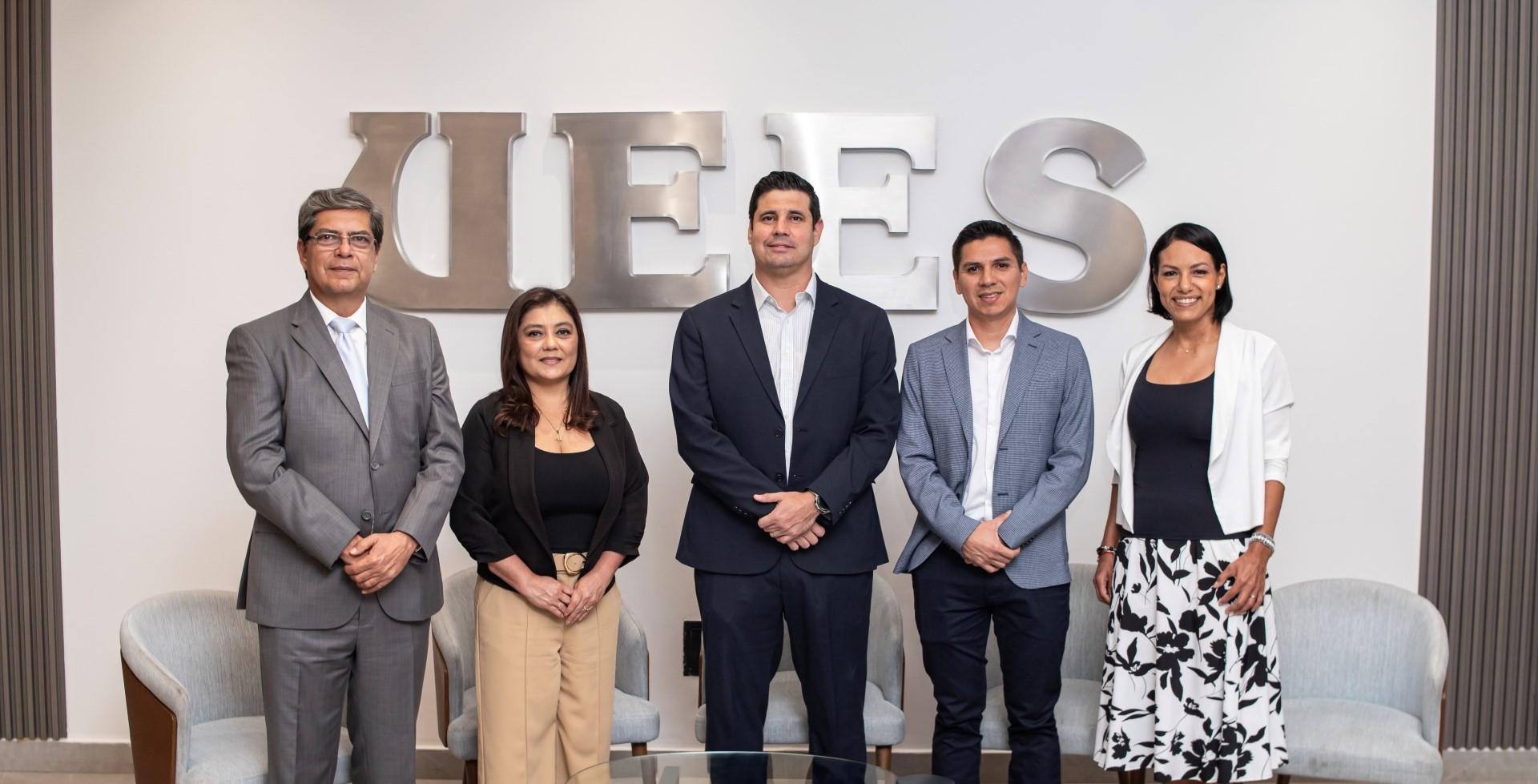Sustainable technology: reconciling human aspects, caring for the planet, and profits
2025-08-25Samborondón, Ecuador.- Convened to discuss the importance of adopting technologies that are currently being used around the world or created locally, representatives of the companies that make up the Steps with Future initiative reveal how they reconcile this urgent need with their sustainability strategies in all their dimensions: environmental, economic, and social.
José Antonio Vargas, General Manager of Reybanpac; Milena Navarrete, Deputy Administrative Manager of Grupo Difare; Arturo Sánchez, Distribution Manager at Unilever; and Denise Cajas, Director of Industrial and Environmental Services at Veolia, shared their experiences on the panel on Sustainable Technology, held at the Universidad de Especialidades Espíritu Santo (UEES).
“We firmly believe in sustainability, which is why we have a committee at Reybanpac that ensures it is a fundamental part of our business strategy”, revealed José Antonio Vargas, who added that "to this end, it is also important to have strategic allies who share this vision. For example, through a university in the Netherlands, we identified a UV technology developed by a small company to purify irrigation water and prevent diseases that affect crops. With another partner, we implemented a biofactory to produce microorganisms that have allowed us to eliminate nematicides and improve soil nutrition. The plastic waste from our operations is delivered to a partner manager, who in return provides us with playgrounds made from recycled plastic, which is donated to the educational centers sponsored by our Wong Foundation," he concludes.
Milena Navarrete agreed that technological developments must involve collaboration with external and internal partners. "The sustainability bond we obtained from the IDB entails a series of commitments that will strengthen our responsible management. We have equipment that promotes decarbonization, such as photovoltaic plants, more efficient cooling and lighting equipment in our facilities. We are also promoting changes to an electric fleet and the efficient driving project, among others. We have researched and developed solutions with our own team to reduce our carbon footprint."
Arturo Sánchez asserted that "technology definitely does not solve everything. There is an intermediate step between maintaining processes that have been manual and then making them digital. Sometimes the best decision is to eliminate that step that does not add value. And we identify those processes with our own people, which is why we even won an award for excellence in digital and technological logistics. What adds value for us? People, the planet, and how we can connect many more with our customers."
For Denise Cajas, “being technologically sustainable means looking beyond simply buying the latest technology; it means approaching the management of that technology from the perspective of how to extend the life cycle of an asset. Making it consume less and last longer is what makes it sustainable. And that applies to an asset, a service, or a value chain. Everything contributes to the ecological transformation that benefits the planet and, of course, people.”
René Rodríguez, Dean of Engineering at UEES, stated that "with environmental, social, and technological challenges, climate change, resource scarcity, energy transition, ecological transformation, and the need for less polluting, cleaner systems converge, forcing us to rethink not only how we do things, but what we are going to do. In this context, sustainability is a necessity, and well-applied technology becomes a powerful ally in achieving it," he concludes.
